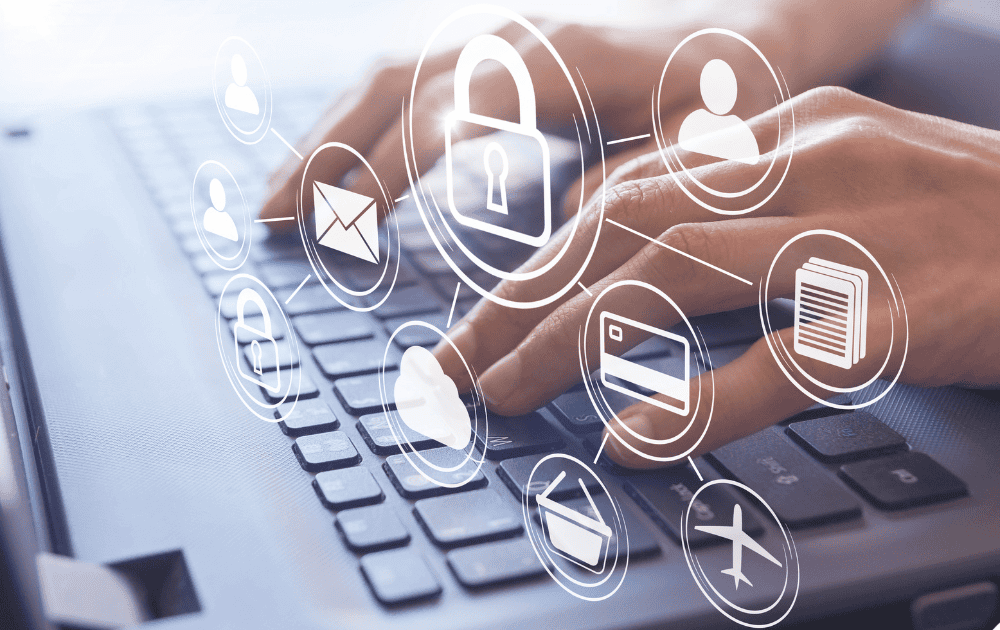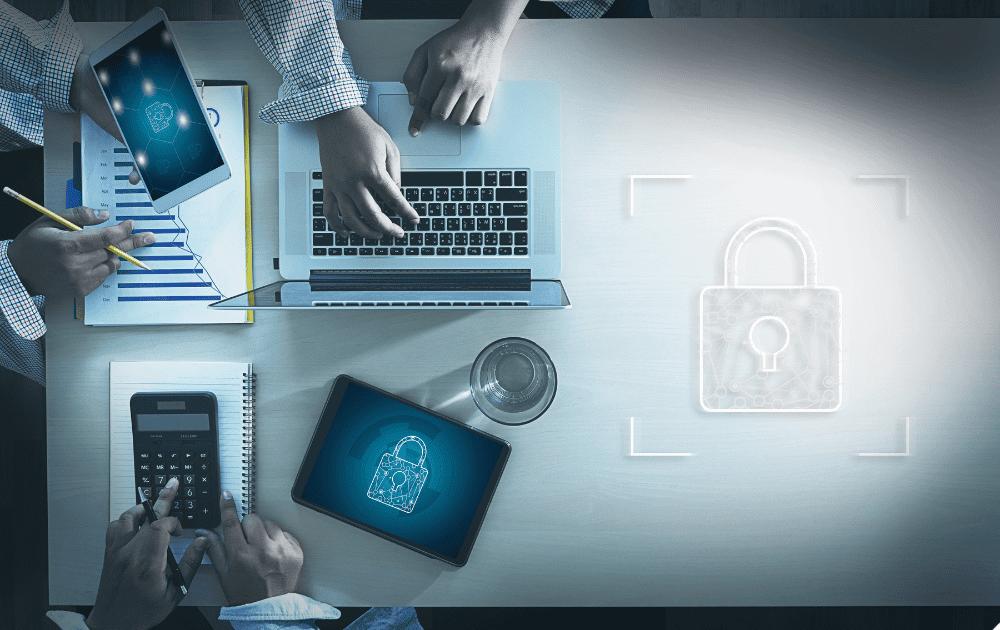Promoting cybersecurity awareness in the workplace is crucial for keeping everyone safe and protecting sensitive information. Engaging employees through interactive training sessions, open discussions, and easy-to-access resources creates a culture of vigilance against cyber threats. When everyone feels empowered with knowledge and skills, it not only reduces risks but also fosters a sense of teamwork and responsibility.
Let’s dive into some effective strategies to make cybersecurity a shared priority in your workplace!
Understanding Cyber Threats
Cyber threats encompass a wide range of malicious activities that aim to exploit vulnerabilities in IT systems and networks. These threats include:
| Type of Threat | Description |
| Malware | Software designed to damage or gain unauthorized access to computer systems. |
| Phishing | Deceptive emails or messages that trick users into revealing sensitive information. |
| Ransomware | Malicious software that encrypts data, demanding payment for decryption. |
| Social Engineering | Manipulative techniques used to persuade individuals to disclose confidential information. |
Understanding these common cyber threats enables IT professionals to better anticipate and mitigate potential risks, safeguarding their organization's digital assets and reputation.

Risks of Ignoring Cybersecurity Awareness
Failing to prioritize cybersecurity awareness within an organization can lead to numerous risks and repercussions, including:
| Risk | Consequence |
| Data Breaches | Unauthorized access to sensitive data, resulting in financial loss and reputational damage. |
| Downtime | Disruption of business operations due to cyber incidents, leading to loss of productivity and revenue. |
| Legal and Regulatory Issues | Non-compliance with data protection laws can result in fines and legal penalties. |
| Damage to Reputation | Public exposure of security incidents can erode trust with customers and stakeholders. |
Recognizing the risks associated with neglecting cybersecurity awareness allows organizations to proactively implement robust security measures and educate employees, effectively mitigating potential threats.
Understanding cyber threats and acknowledging the risks of ignoring cybersecurity awareness are foundational steps in fostering a cyber-resilient workplace culture. By promoting a proactive approach to cybersecurity, IT companies can enhance their defenses and minimize the impact of cyber threats on their operations and reputation.
Building a Cyber-Smart Culture
In fostering a cyber-smart culture within an organization, it is crucial for leadership to play a pivotal role in promoting cybersecurity awareness. By setting a strong example and emphasizing the importance of cybersecurity, leaders can instill a culture of vigilance and proactive risk mitigation.
Leadership Role in Promoting Cybersecurity Awareness
Leadership holds the responsibility of championing cybersecurity awareness initiatives and integrating cybersecurity practices into the organizational culture. Executives and managers should actively support and participate in cybersecurity efforts, demonstrating a commitment to protecting sensitive information and data assets.
It is essential for leaders to communicate the significance of cybersecurity to all employees, emphasizing the role each individual plays in safeguarding the organization against cyber threats.
Involving Employees in Cybersecurity Initiatives
In addition to leadership engagement, involving employees in cybersecurity initiatives is vital for establishing a comprehensive approach to cybersecurity awareness. Employees at all levels of the organization should receive training on cybersecurity best practices and be encouraged to report any suspicious activities or potential security breaches.
To effectively engage employees in cybersecurity efforts, organizations can implement interactive training sessions, workshops, and simulations to enhance their understanding of cybersecurity risks and mitigation strategies. Encouraging open communication channels for reporting security incidents and providing rewards for cybersecurity awareness initiatives can further incentivize employee involvement.
Creating a collaborative environment where both leadership and employees actively engage in cybersecurity initiatives strengthens an organization’s overall cybersecurity posture and promotes a culture of cyber resilience.
Encouraging Best Practices
To foster a cyber-smart culture within an organization, it is essential to encourage best practices that promote cybersecurity awareness. Two key initiatives in this regard are implementing strong password policies and enforcing secure data handling protocols.
Implementing Strong Password Policies
One of the foundational pillars of cybersecurity is the utilization of strong and secure passwords. Implementing robust password policies helps safeguard sensitive information and prevent unauthorized access to data. Here are some key components of a strong password policy:
| Password Policy Component | Description |
| Password Complexity | Require passwords to be of a certain length and include a combination of letters, numbers, and special characters to enhance complexity and resilience against brute-force attacks. |
| Regular Password Updates | Encourage employees to change their passwords periodically to mitigate the risk of compromised credentials. Setting specific intervals for password changes can enhance security. |
| Multi-Factor Authentication (MFA) | Implement MFA as an additional layer of protection, requiring users to verify their identity through multiple credentials such as a password and a verification code sent to their mobile device. |
Enforcing strict adherence to these password policies significantly enhances an organization's cybersecurity posture and reduces the likelihood of unauthorized access to sensitive information.

Enforcing Secure Data Handling Protocols
In addition to strong password policies, enforcing secure data handling protocols is vital for maintaining the confidentiality and integrity of data. Establishing clear guidelines and procedures for handling, storing, and transmitting data can mitigate the risk of data breaches and unauthorized disclosures. Key elements of secure data handling protocols include:
| Data Handling Protocol | Description |
| Data Encryption | Encrypt sensitive data both at rest and in transit to prevent unauthorized access in the event of a security breach. Utilize encryption technologies such as SSL/TLS for secure communication and AES for data encryption. |
| Access Controls | Implement role-based access controls to ensure that employees only have access to the data necessary for their job responsibilities. Regularly review and update access permissions to align with organizational requirements. |
| Secure File Transfer | Encourage the use of secure file transfer protocols such as SFTP or secure cloud storage solutions to securely share and store sensitive data. Avoid using unsecured methods like email for transmitting confidential information. |
Enforcing secure data handling protocols and equipping employees with the necessary training and resources strengthens organizations' cybersecurity defenses while promoting a culture of awareness and responsibility toward data protection.
Creating Awareness Campaigns
In order to foster a cyber-smart culture within the workplace, it is essential to implement effective awareness campaigns that educate employees on cybersecurity best practices and encourage vigilant behavior. Two key strategies for creating awareness campaigns are utilizing internal communication channels and organizing cybersecurity awareness events and workshops.
Utilizing Internal Communication Channels
Internal communication channels play a crucial role in disseminating cybersecurity awareness information to employees. By utilizing these channels effectively, organizations can reach a wide audience and reinforce the importance of cybersecurity practices in the workplace. Some common internal communication channels include:
| Communication Channel | Description |
| Email Communications | Sending out regular security awareness emails with tips, updates, and reminders. |
| Intranet Portals | Posting articles, blog posts, and resources related to cybersecurity on the company intranet. |
| Employee Newsletters | Including cybersecurity awareness articles and success stories in regular newsletters to keep employees informed. |
| Digital Signage | Displaying cybersecurity awareness messages on digital screens in common areas for increased visibility. |
Engaging employees through these internal communication channels can help create a culture of cybersecurity awareness and encourage everyone to play an active role in protecting sensitive information.

Organizing Cybersecurity Awareness Events and Workshops
In addition to leveraging internal communication channels, organizing cybersecurity awareness events and workshops can further enhance employee knowledge and understanding of cybersecurity best practices. These events provide interactive opportunities for employees to learn about cybersecurity in a more engaging and hands-on manner. Some examples of cybersecurity awareness events and workshops include:
| Event/Workshop Type | Description |
| Lunch and Learn Sessions | Hosting short, informative sessions during lunch hours to discuss relevant cybersecurity topics. |
| Simulation Exercises | Conducting simulated phishing attacks or cyber breach scenarios to help employees recognize and respond to potential threats. |
| Cybersecurity Training Workshops | Providing hands-on workshops to educate employees on secure password practices, data protection, and safe internet browsing. |
| Guest Speaker Seminars | Inviting cybersecurity experts to deliver presentations on the latest cyber threats and mitigation strategies. |
Organizing events and workshops allows organizations to actively engage employees, raise awareness about cybersecurity risks, and empower individuals to contribute to a cyber-resilient workplace environment. These initiatives foster a proactive approach to security, ensuring that everyone plays a role in safeguarding digital assets.
Monitoring and Evaluation
Monitoring and evaluation are crucial for gauging the effectiveness of cybersecurity awareness initiatives and ensuring that employees are actively engaged in practicing safe cybersecurity habits. This section delves into tracking employee engagement with cybersecurity practices and assessing the effectiveness of cybersecurity awareness programs within the workplace environment.
Assessing the Effectiveness of Cybersecurity Awareness Programs
Assessing the effectiveness of cybersecurity awareness programs involves evaluating the impact of these initiatives on employee behaviors, attitudes, and overall security posture. By systematically measuring the outcomes of awareness campaigns, organizations can determine the return on investment and the extent to which employees are adopting secure practices.
One way to assess program effectiveness is to conduct pre- and post-training assessments to measure changes in employees' knowledge levels and attitudes towards cybersecurity. Surveys and feedback forms can also capture employees' perceptions of the training content, delivery methods, and relevance to their roles.
| Evaluation Method | Description | Benefits |
| Pre- and Post-Training Assessments | Assess changes in knowledge and behavior before and after training | Measures the impact of training on employee cybersecurity awareness |
| Surveys and Feedback Forms | Gather employee feedback on training content and delivery | Provides insights for improving future awareness programs |
Regularly reviewing and analyzing these evaluation metrics can help organizations refine their cybersecurity awareness strategies, address emerging threats, and continuously enhance their security culture. By fostering a culture of vigilance and accountability, organizations can proactively safeguard against cyber threats and protect sensitive information.
Our team at LK Tech specializes in delivering high-quality cybersecurity services, ensuring that your organization stays ahead of potential risks. If you’re interested in boosting your cybersecurity measures with expert support, contact us today to learn how our cybersecurity services in Cincinnati can help fortify your defenses!


